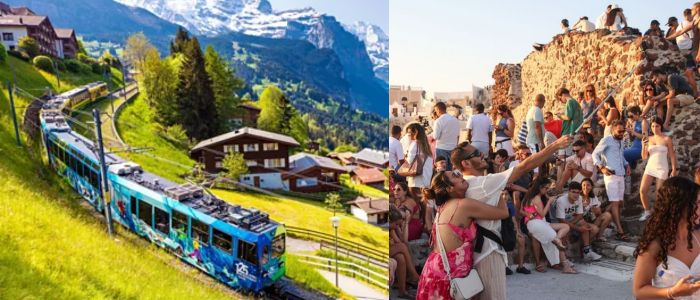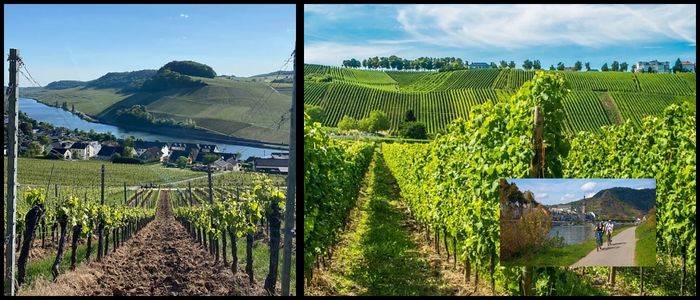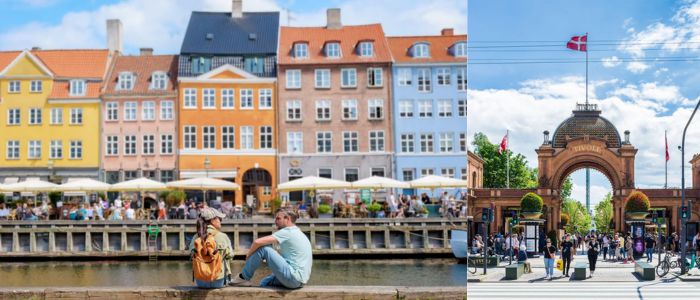Public Demand Spurs Change
And in the Canary Islands, there were major demonstrations toward the end of the year against mass tourism that have continued into this date, with further protests expected across southern Europe this summer. Local people are reporting increased costs of living, overcrowding in cities and poor behavior by tourists.
While tourism reform is a complex, slow-moving process that requires the cooperation of many parties, there have been some steps throughout Europe. Local communities are becoming more vocal and calling for officials to do more. Tourists themselves are increasingly aware of the impact, helping to stimulate demand for sustainable alternatives.
Switzerland: Unseason Travel and Rail Advertisement.
As far as green transport is concerned, Switzerland is increasingly developing green transport as part of its 'Sustainable' development. Its national train system will be completely powered by hydroelectricity by year’s end. The project also promotes year-round tourism, including longer ski lift hours and hotel seasons. Travelers making reservations at Swisstainable-certified hotels can receive up to 33% off public transport fares.
Not the most overtouristed corners of Europe, you might think, but destinations like Lauterbrunnen now bristle with overtourism, especially once they have been the focus of popular film and literature. There is a CHF5 (£4.50) tourist tax per person at the lake pier (earmarked for local infrastructure). A new parking garage linked to a train line into Lauterbrunnen is also getting cars off the narrow roads.
Switzerland’s message is obvious: travel out of season, use public transportation and be prepared to chip in on preserving popular sites.
Spain: Smart Data in the service of Tourism And if that Smartphone beeps… With an activated GPS signal!
Spain, one of the top destinations for British holidaymakers and the second most-visited country of Europe, still grapples with overtourism. The Canary and Balearic Islands are still hotspots, and some 66,000 unlicensed short-term rental listings have been removed this year.
Smart technology is also being put to use to control visitor flows. A digital platform that monitors beach crowding, air quality, sea temperatures and jellyfish activity now assists both tourists and hospitality providers in making informed decisions.
Five regions, The Canary Islands, The Balearic Islands, Valencia, Catalonia and Andalucia, currently occupy 85% of the country´s tourists. To mitigate this, tour operators are introducing visitors to the road-less-followed. Some areas now charge tourists taxes that place a premium on shorter stays; the Paradores plan encourages tourists to travel to historic sites that include castles and manor houses.
Berlin: Reward for Eco-Travelers
Berlin is developing a scheme that rewards tourists for making eco-friendly choices. These benefits could be in the form of complimentary tours, or discount for those who participate in planting or removal of waste. The city is also backing an eco-minded network of hotels, shops and bike trails.
Another one called the “15-minute city” makes it convenient for hotel guests to access essential services by foot or on a bicycle, that promote a low-emission, local experience.
The Bigger Picture: Air Travel and Cruising
Despite such measures air and cruise tourism continue to increase pressure on the destination. Europe’s most popular tourist spots may continue to be overrun without caps on the number of visitors.
Numerous protests are predicted this summer in Spain. The aim of the ongoing reforms is not to deter tourists but to maintain the quality of life for residents.
Only time will tell if the Canary Islands, and possibly others, can turn things around during the decade ahead.
Just tell me if you also want the metadata for this reworked edition.
Travel

Europe explores new solutions to tackle over tourism crisis

Anti-tourism demonstrations that seared into the headlines last year have flared anew as anger rises once more in some European hotspots. But newer ideas and efforts are emerging too, with the goal of easing pressure on popular areas and encouraging sustainable travel.















